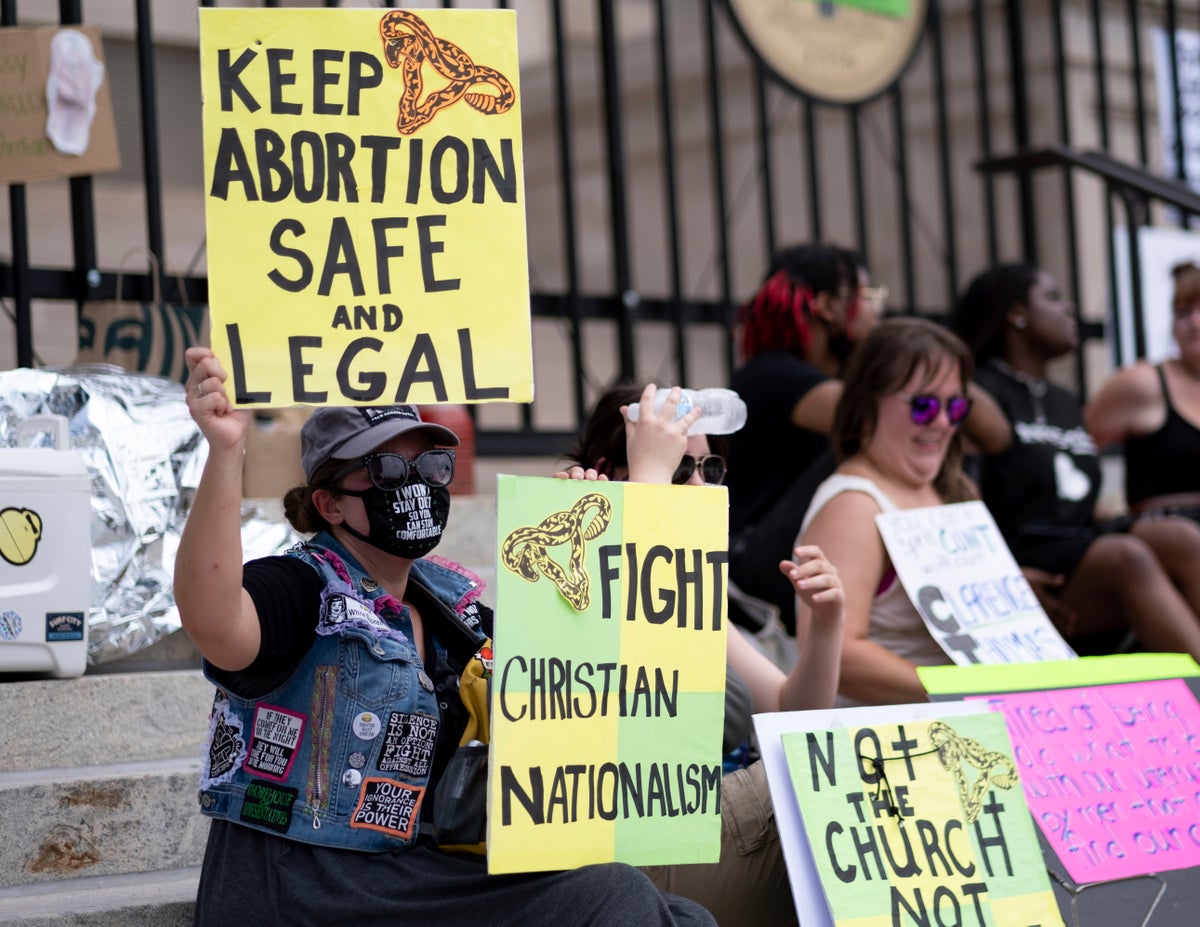
A one-page order from Georgia’s Supreme Court has reinstated the state’s ban on abortion at roughly six weeks of pregnancy, overturning a lower-court ruling that struck down the ban just one week ago.
The ruling on 23 November puts the lower-court ruling on hold while the state’s high court considers the full appeal. Seven of the nine justices on the court agreed to the decision.
On 15 November, Fulton County Superior Court Judge Robert McBurney struck down the law, arguing that the ban was invalid when it was enacted in 2019, when the US Supreme Court’s decades-long precedent in Roe v Wade remained in effect.
That decision and another precedent-setting decision in Planned Parenthood v Casey were overturned by a conservative supermajority on the nation’s high court in June in the case of Dobbs v Jackson Women’s Health Organization.
The ruling struck down a constitutional right to abortion care and allowed individual states to determine whether to enact further restrictions or outlaw abortion entirely.
Last week’s decision prohibited the state from enforcing the ban, allowing providers to resume providing care.
Georgia’s law – which prohibits most abortions when a “detectable human heartbeat” is present – went into effect in July.
Ultrasounds can detect cellular activity within an embryo that will eventually become the heart at roughly six weeks into a pregnancy, before many people know they are pregnant, or at about two weeks after a missed period. Falsely named “fetal heartbeat” proposals effectively ban most abortions.
More than a dozen states have outlawed or severely restricted abortion access in the wake of the Dobbs decision, leading to the closures of dozens of clinics and a wave of litigation as abortion rights advocates warn of devastating consequences for patients and threats to life-saving medical care. Georgia and Ohio have both enacted abortion bans at roughly six weeks.
Monica Simpson, executive director of SisterSong Women of Color Reproductive Justice Collective, the lead plaintiff in the case against Georgia’s anti-abortion law, said the decision is “disappointing and deeply frustrating” and criticised Governor Brian Kemp for “doubling down to control access to reproductive health care”.
“All Georgians – including Black women and Queer, trans, low-income, and rural people – should have the freedom to decide to have children, to not have children, and to raise the families they have in thriving communities,” she added. “We remain undeterred from realizing this vision.”
Georgia’s anti-abortion law “will cause immense harm, especially to Black Georgians and people with the fewest resources — who are least likely to be able to travel out of state for care and most likely to suffer severe medical consequences from forced pregnancy and childbirth,” according to Julia Kaye, staff attorney with the American Civil Liberties Union’s Reproductive Freedom Project.
“Legal ping pong” in states like Georgia where wavering court decisions are “causing chaos” for abortion providers also leaves patients “frantically searching for the abortion services they need,” according to Alice Wang, staff attorney at the Center for Reproductive Rights.







